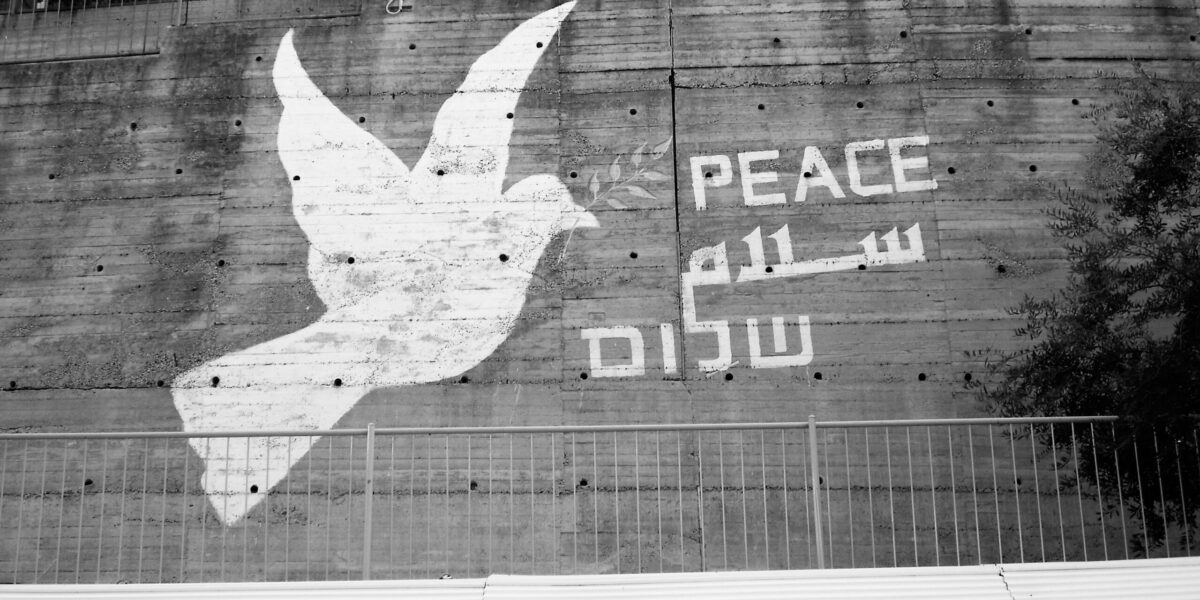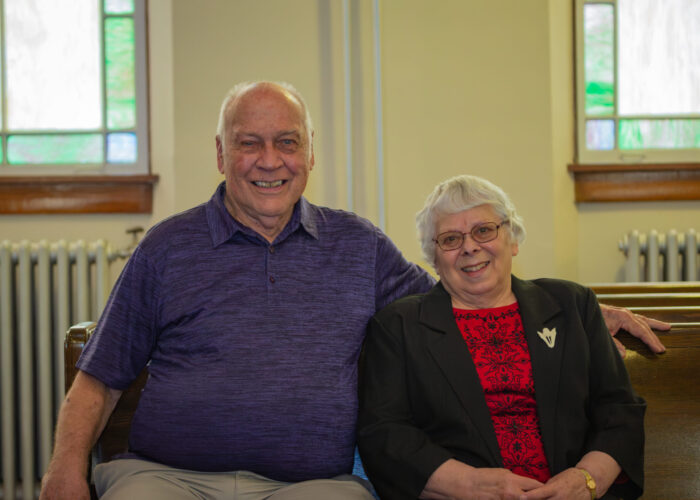The Peace and Justice Support Network is addressing the Israel-Palestine conflict in several ways: helping organize trips to the region through the "Come and See" fund; working with MennoPIN, a grassroots network of Mennonites dedicated to peace for Israel-Palestine; and also working with other partners like Christian Peacemaker Teams and Mennonite Central Committee.
The goal of this work is shalom for every person who lives in Israel-Palestine. We believe God can make a way for everyone in the region to live in peace.
In December, I attended the Impact Holy Land conference in Philadelphia. Hosted by Evangelicals for Social Action, the conference brought together people who yearn for peace in the Middle East. The speakers featured people of different nationalities, religions and cultures, but who were all dedicated to finding a peaceful solution to the conflicts in the region.
The Peace and Justice Support Network organized a breakfast for Mennonites attending the conference. It was a time to process the information and stories we heard. Here are three things I took away from Impact Holy Land:
1. When you work on issues related to Israel-Palestine, you will hear things you disagree with. The organizers of Impact Holy Land stressed this point, and it’s true. The conflict in Israel-Palestine involves religion, politics, theology, and other fields that elicit strong emotion. Disagreement will happen. It’s important to realize this upfront. The important thing is to stay committed to working toward peace.
2. People, not politics, is the reason to work for peace. Like other long-standing conflicts, Israel-Palestine sometimes can seem to be chiefly about politics or policy. These are important factors. But we don’t engage in these issues to win arguments or validate political viewpoints. The speakers at Impact Holy Land held different views on policy, but the reason for their work was to bring relief to the people living with the painful reality of the conflict.
3. There is reason to be hopeful. There aren’t easy solutions to the conflict, and no one proposed there are. But when the desire for peace is embodied in thoughtful people and spreads across a variety of beliefs and customs, the possibilities are limitless.
Continue to visit PJSN.org to stay updated on the ways PJSN is working for peace in Israel-Palestine and ways you can get involved.




